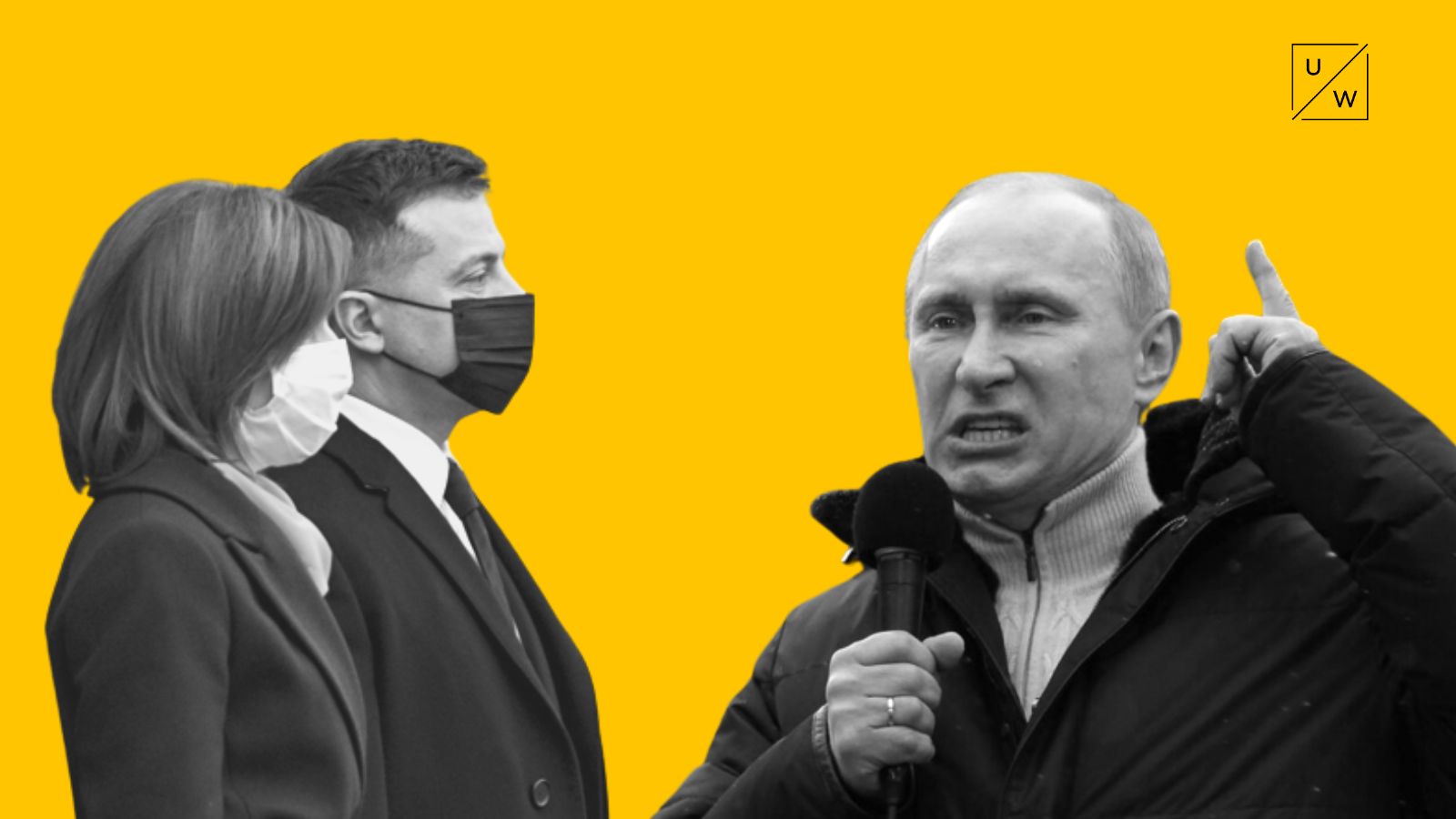
This narrative was picked up by Russian propaganda and is now being used in reference to Moldova.
The idea was used in Vladimir Putin's historical essay "On the Historical Unity of Russians and Ukrainians."
This text can be regarded as a theoretical justification of Russia's subsequent full-scale invasion of Ukraine. Putin outlined his worldview in which Ukraine was built up by outsiders as an "anti-Russian bridgehead." He repeatedly labeleld pro-Western Ukraine as an "anti-Russia," negating the country's agency and blaming the West for dividing Ukraine and Russia.
The concept of countries as "anti-Russias" is a whole new narrative used not only by Russian propaganda but also introduced to Russia's education system. The Russian Ministry of Education issued instructional guidelines for the teaching of non-history specialists at universities. This document explained the necessity of the so-called "special military operation" by the Ukrainian government's "transformation of Ukraine into an 'anti-Russia' with the help of NATO."
In addition, head of the State Duma Committee on International Affairs Leonid Slutsky said on February 5, while commenting a recent interview by ex-Israeli Prime Minister Naftali Bennet, that it was Kyiv which rejected the negotiations with Russia in March 2022, because "the West couldn't abandon its brainchild, the 'anti-Russia' project in Ukraine."
On February 10, Russian Foreign Ministry spokeswoman demanded that the Moldovan government stop turning the country into "anti-Russia." Zakharova insisted that external powers were trying to impose an "anti-Russian course" on Moldova as "was done previously with Ukraine." She threatened that Moldova's pause in cooperation with the Commonwealth of Independent States would severely harm the country's economy.
These remarks echoed statements by Russian Foreign Minister Sergei Lavrov, who said on February 2, that Moldova was being considered for the role of a "second Ukraine." He argued that the West was trying to make Moldova into "another anti-Russia." Lavrov added that "they would like to turn Georgia into another irritant," invoking the times of pro-Western President Mikheil Saakashvili during whose term Russia invaded Georgia in 2008.
Moldovan Foreign Ministry Spokesman Daniel Vodă responded to Lavrov's words by insisting that European integration was the will of the Moldovan people.
On February 9, during his visit to Brussels, Volodymyr Zelenskyy revealed that he had warned Moldovan President Maia Sandu of Russian plans to take control of Moldova. Chișinău confirmed their knowledge of these plans and reported that Moldovan security services had uncovered and prevented acts of subversion against the country's government.
The term "anti-Russia" is problematic at its core. Why should Russia be the reference point for any of its former vassals or colonies? One can recall the book by former Ukrainian President Leonid Kuchma titled Ukraine is Not Russia.
Russia seems to have great difficulty accepting the idea that the countries it used to control can pursue their own foreign policies, even ones that defy Moscow. What makes this dangerous is that this narrative has already gained momentum in Russia's public discourse, and one need look no further than Ukraine to see how dire the consequences of this imperialist thinking can be.
